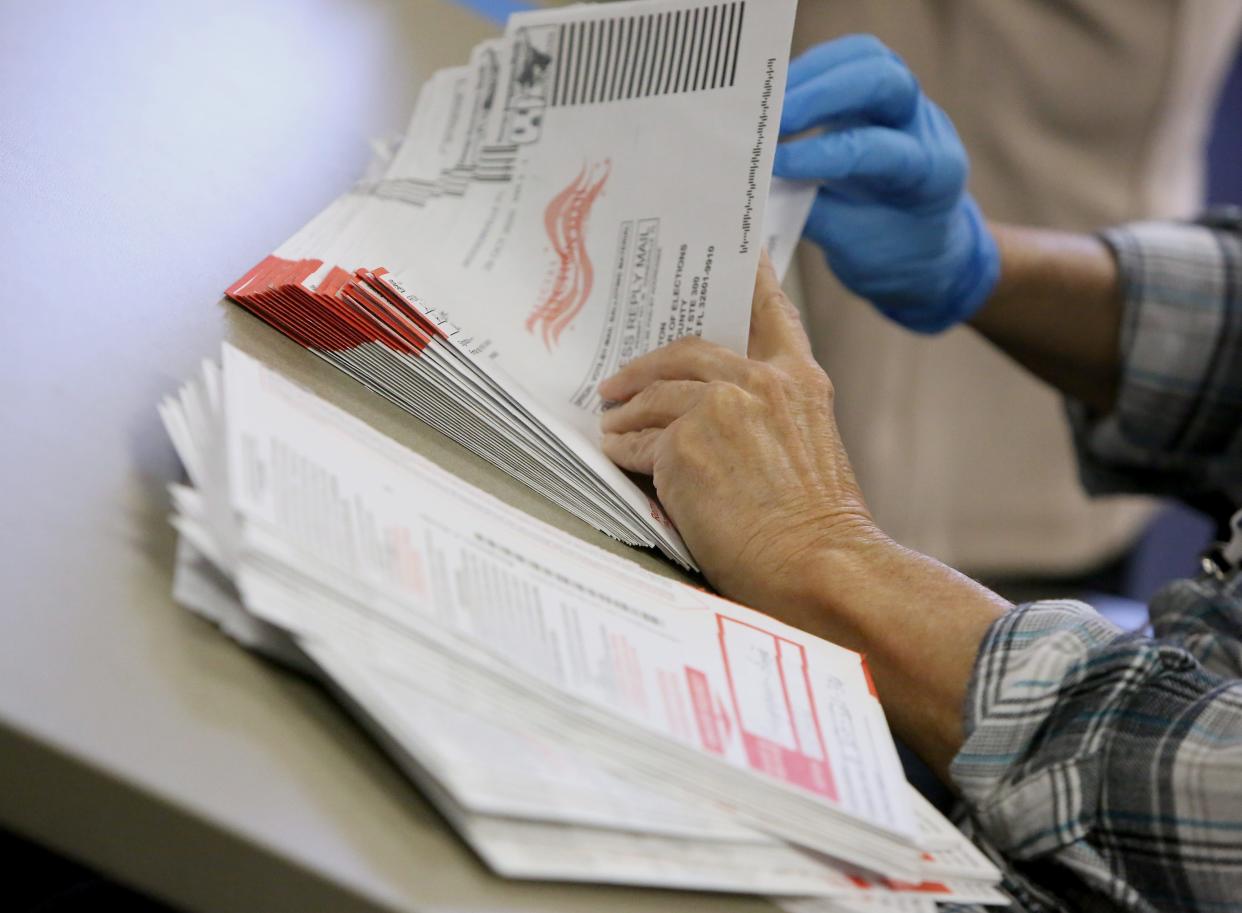Inmate charged in Alachua County voter fraud investigation gets 3-year sentence

The first of 10 former and current Alachua County jail inmates charged with voter fraud related to the 2020 election was sentenced Thursday by a judge.
Daniel Dion Roberts, 48, was sentenced by Judge James Colaw to three years in prison as part of a plea agreement for charges of voter fraud and providing false voter registration information.
Under the agreement, Roberts' three-year sentence will run concurrent to his six-year sentence on domestic battery and weapons charges, meaning he will serve no extra time behind bars for his latest offenses.
Roberts is scheduled to be released on Sept. 18, 2025.
Taking a stand: Voting activists launch statewide election integrity campaign to help inmates charged
Editorial: Voting charges against Alachua County inmates show system designed to fail
More: 2nd person arrested in voter fraud investigation at Alachua County jail; bail set at $75K
Nine other convicted felons have been charged locally with various election crimes related to the investigation, which was connected to voter registration drives at the jail by the Alachua County Supervisor of Elections Office.
A report released April 4 by the Florida Department of Law Enforcement cleared the Supervisor of Elections Office of any wrongdoing, but noted that the practice of mass registering of jail inmates “could compromise the integrity of the Florida Voter Registration System.”
The investigation into voter fraud began following a series of complaints filed by Mark Glaeser, Gainesville database researcher and programmer who says he found thousands of people across the state who registered or voted illegally in 2020.
The investigation found that while the elections office normally visits the jail to help inmates with voting and voter education, the office "deviated from the typical jail procedures" to speak with inmates about voting compared to past years.
"Once we tell them what the law is and they say, ‘Oh, I’m fine, I can register to vote,’ I cannot tell them they cannot register to vote," Supervisor of Elections Kim Barton told The Sun in April. "They’re the ones who are signing the oath on the form.
“We’re following the statute of how we process voter registration applications," she said.
In response to the investigation, Brian Kramer, state attorney for the Eighth Judicial Circuit, announced May 17 plans for a new voter education program that aims to make voting for previously convicted felons less daunting by ensuring that they’re voting legally.
Dubbed the “V8th program,” Kramer said he hopes the program will allow ex-felons impacted by the back-and-forth changes of Amendment 4 to avoid choosing between continuing to be disenfranchised and risking logging a new felony offense by voting.
“The purpose of this program is to make sure that people have a way of knowing, ‘Is my sentence complete to the point where I am eligible to vote again,’" Kramer said.
Amendment 4, which took effect in 2019, was passed by nearly two-thirds of Florida voters and was supposed to restore voting rights to people with felony convictions, except those convicted of murder or sexual offenses, who had completed their sentences.
Republican lawmakers, however, passed a bill requiring that a convicted felon's fees, court costs and restitution be paid before their voting rights are fully restored. The back-and-forth brought mass confusion to people who thought they had their rights restored.
Currently, the state has no one-stop system in place to flag those who attempt to register to vote by mistake before penalties are handed down.
Florida Gov. Ron DeSantis signed legislation recently that will create an investigative unit for alleged voting crimes, as well as require voter rolls to be updated more frequently, and increase penalties for election-related offenses. The new laws will take effect July 1.
This article originally appeared on The Gainesville Sun: Alachua inmate charged in voter fraud investigation gets 3 years

